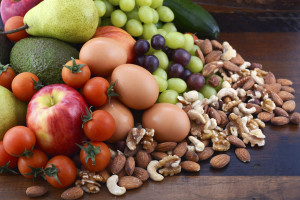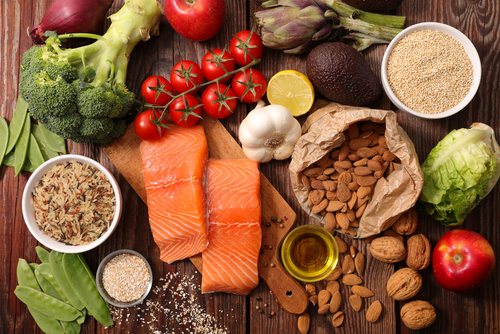 A healthy lifestyle requires a healthy diet. Diet, in this sense, is not about picking and choosing a diet plan rather it is incorporating elements of food products all bodies need to function at their optimal level. Proper nutrition is not just about what goes in our bodies but also about how it gets used as fuel for everyday life. Some foods are better than others. There are some essential elements to include when putting together a plan for overall health.
A healthy lifestyle requires a healthy diet. Diet, in this sense, is not about picking and choosing a diet plan rather it is incorporating elements of food products all bodies need to function at their optimal level. Proper nutrition is not just about what goes in our bodies but also about how it gets used as fuel for everyday life. Some foods are better than others. There are some essential elements to include when putting together a plan for overall health.
Protein
High protein foods are essential for a balanced diet. Animal protein is one of the best ways to get the right amount in our bodies. Cheese, chicken, eggs, milk and other meats are great building blocks which are required for the building of all new cells in the body. Peas and beans such as lentils provide excellent sources of protein.
Fat
Pure fats including oil and butter are sources of good fats. Our cells need fat for energy. Meats are also a great way to incorporate fats into a healthy diet.
Carbohydrates
When carbohydrates are digested, they release sugars which are the main fuel for the body and are necessary for brain function. Whole grain wheat breads, rice, potatoes, whole wheat pasta and certain cereals provide our bodies with much needed calories for everyday function.
Water
Approximately 60 percent of our body weight is made up of water. It is necessary for survival to have water and, without adequate hydration, our bodies will shut down. Kidney and bladder function require water for filtration. Daily intake of water is necessary but can be drunk in the form of water based drinks.
Vitamins
Vegetables carry important nutrients our bodies need to be healthy. Vitamin C builds healthy bones, gums, joints and muscles. Absorption of certain foods such as iron from meat come from this essential vitamin. Vitamins B and B12 are required for healthy cell function. Breads, meat and potatoes carry vitamin B while B12 is found within animal foods such as eggs, milk and cheeses which are important for nervous system function. Vitamins A, D and E are also essential to a healthy diet. Folic acid is involved in the formation of new blood cells which helps prevent anemia or low iron. Women of childbearing age and those who are pregnant need extra folate usually found in leafy greens and fresh vegetables.
Minerals
Iron transports oxygen around the body in red blood cells. Red meats including beef and lamb have high levels of this mineral which may also have higher levels of both good and bad fats so should not be eaten everyday, but in small quantities are necessary for healthy overall function.
Calcium is another important mineral found in milks, cheeses and yoghurt which aids in healthy bone and joint development.
A healthy diet is built on a strong foundation. The essential building blocks noted here are a good place to start. Proper nutrition comes from eating in balance and it is never too late to get started.


